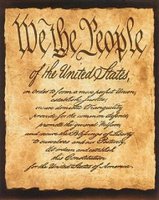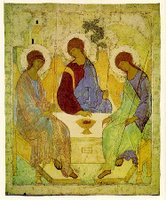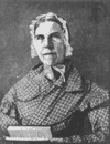 So I know you Quakers out there may not know it, but today is Fat Tuesday (aka Mardi Gras). I don't generally pay a whole lot of attention to the church calendar, but being in seminary with lots of other denominations I'm aware of a lot more--like I actually learned about epiphany this year...
So I know you Quakers out there may not know it, but today is Fat Tuesday (aka Mardi Gras). I don't generally pay a whole lot of attention to the church calendar, but being in seminary with lots of other denominations I'm aware of a lot more--like I actually learned about epiphany this year...In some ways Quaker lack of church literacy can be a positive thing and in some ways it's negative. It's negative in that it makes it hard to communicate as well with other denominations--we have very different traditions (traditions set against traditions at times), and until college I think I wasn't even aware of the idea of Lent. It's too bad in some ways because I think there's a richness in tradition that we tend to miss out on. It's kind of cool sometimes to think about generations upon generations of people practicing the same things, saying the same words, using the same symbols, organizing their lives around the same rhythm. This is about my only empathy with liturgy, because liturgy definitely has its own problems too--but done well it can be beautiful and meaningful.
Positives of not going by the church calendar are many...
First of all, since I hadn't heard of Lent until college it was more meaningful to me. When I learned about it, the first year I gave up sugar for Lent. That was a mistake! =) In my life at the time it was a true personal sacrifice... A couple years ago a F/friend and I decided to try fasting one day a week during Lent, and ended with fasting the three days leading up to Easter and going for a mini-retreat together to the Oregon coast, praying, centering, journaling, sleeping, being hungry...It really enforced that idea of waiting in the darkness of a time when it seems like there's no hope, and we got up and went down to the beach at sunrise on Easter and watched the sun rise in silence as we remembered the foundational hope and joy which Christianity is supposed to be about. Then we ate a celebratory breakfast, which tasted so good! It was an amazing experience, to feel like I was part of the story, embodied in it, that my very body was living out the story (not of death, but the story of how the disciples might have felt). It reminded me to in a physical way of the real presence and nearness of our embodied (incarnated) God, who chooses to be incarnated in us still. The time and space to prepare for this experience made a huge difference, compared to other years when I've just gone to church/meeting on Easter without taking that time to think about what it meant, and what it means to me, that we as Christians believe in an incarnated Lord who lived and died, and the hope that comes from new life. So I think that because I didn't know about Lent until later it gave it a freshness, so I could actually experience it as a new thing rather than just a tradition I was taught to do.
Second, I think Quakers are able to be more creative in many ways because we're not liturgical in the same way as some denominations. We're able to pay attention to the living, present Spirit, speaking to our condition, rather than a priest reading what someone decided a hundred or more years ago that should be read on this specific Sunday (and yes, in this case it is Sunday, not First Day). But silence can easily become another form of liturgy, as with Quaker Quietists in the 17th century, where the means becomes the end--rather than the end being hearing God and speaking and acting on what we hear, the end can be just silence, that nice feeling we get when we're at peace inside ourselves. This is a good starting point, but it's only the beginning. And it can become part of our liturgy not to do the physical sacraments--the not-doing is a tradition, a form, where we forget the point--that all of life is a sacrament, that we're in the presence of God at all times, not just at baptism or during communion (or others depending on your denomination). So by not being "liturgical" we still can fall into the same problems.
Third, the church calendar tends to be fairly human-created--it is human-created. At some point Christians decided it would be good to have a 40-day period of preparation for thinking about the life of Jesus and preparing to remember the powerand hope of Easter. Great! And they decided on a 4-week time (I think it's 4 weeks...) of preparation for Christmas, and other things in church calendar. Wonderful! And early followers of Jesus instituted physical sacraments in order to remember the life of Jesus. Good! I think times of preparation and ways to help us remember are so helpful. But at the same time, they often lead to distortions and abuses. They move from being human creations that connect us with God, ways to prepare ourselves and remember, to being things that are required by a church for our salvation.
And with Fat Tuesday and Lent, this comes into sharp relief. After Lent becoming a liturgical practice that was expected of all Europe, people figured they should have one last day of extravagance (and even immorality) before they repented and were absolved by their self-deprivation during Lent. Rather than a gift freely given, Lent became an obligation to fulfill, and whatever corners could be cut would be. It wasn't a matter of love and joy anymore, but fear of damnation. I don't think that's a good way to build a church, but that's just my Quakerism coming out again...
However, I think we as Quakers could definitely revision some liturgical practices, look at what in them is helpful and meaningful, and make some of them part of our yearly spiritual practice--not as an obligation, but as a remembrance,as a preparation, as a way to experience something we haven't before, as a way of connecting with so many who have gone before us and who have found meaning in these forms. Or, what if we created our own practices that were personally meaningful and provided the same helpful pieces in our spiritual journeys? I think we as Quakers could work on this whole physical-embodiment-as-symbolism stuff in better ways than we currently do, and we might surprise ourselves with what we learn!
That said, I'm going over to some friends' house tonight for a Fat Tuesday dinner! =) Our husbands are making us crepes...Mmmm! (I'm not sure why crepes, I guess because they're French?) Anyway, so that should be fun.
And I'm thinking about giving up meat for Lent. Ha! (In case you hadn't noticed, I'm a vegetarian already...)













